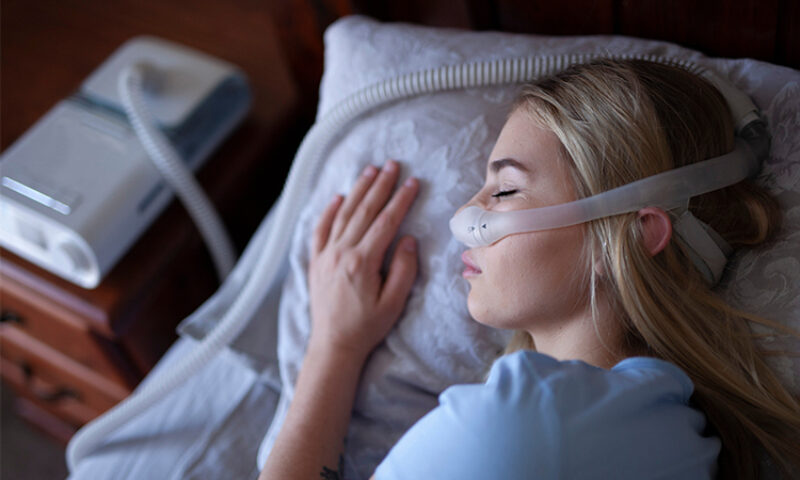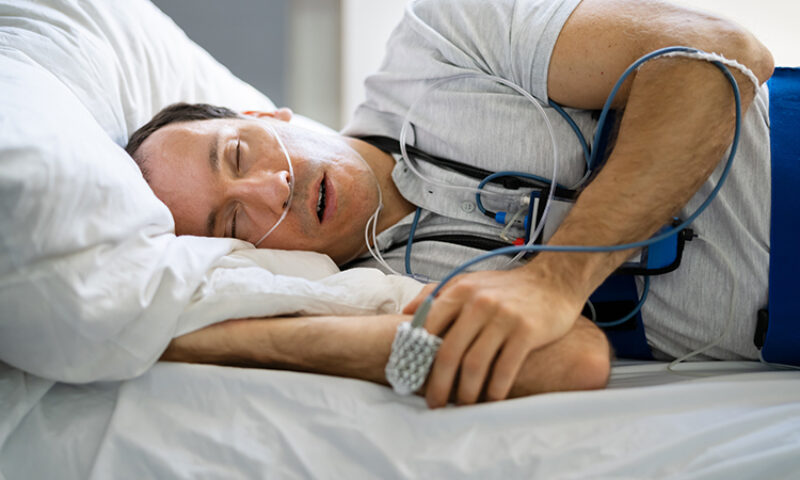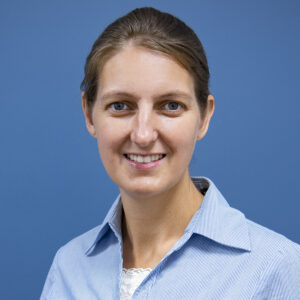
Sleep Testing
Find out why falling or staying asleep is challenging with sleep testing.
What is sleep testing?
Also known as a sleep study, sleep testing involves monitoring an individual for a variety of factors to diagnose sleep-related conditions. A sleep study can be performed at a medical facility or at home depending on the recommendation of the provider. It is typically done at night to follow the patient's normal sleep cycle.
During the study, providers monitor breathing, blood-oxygen levels, brain waves, and heart rate. Sleep involves two stages, non-rapid eye movement, and rapid eye movement. It’s normal to cycle between the stages throughout the night at regular intervals. During a sleep study, providers are able to determine if the sleep process is being interrupted. This information is useful in providing a diagnosis for sleep-related conditions and provides insights into possible treatment options.
What conditions does sleep testing diagnose?
A sleep study may be recommended by a sleep medicine specialist if a patient’s signs and symptoms are lending to a sleeping disorder. Some conditions that can be diagnosed from sleep testing include:
Restless leg syndrome
Narcolepsy

Types of sleep studies
A sleep study can either be done at a sleep center or through an at-home study. A provider will work with the patient to determine which type they recommend.
Sleep testing at a center
In a sleep study performed at a sleep testing center, patients are given a relaxing sleeping environment that mimics the comforts of home. Patients are allowed and encouraged to bring items from home like their own pajamas, pillow, and blanket in order to best represent a normal night of sleep.
Providers will attach comfortable sensors to the patient to track and send information to the team monitoring. Sleep testing at a center typically occurs overnight and is non-invasive to a patient's regular schedule, allowing them to go about their day normally after waking up.
After the study is concluded, the results will be shared with the sleep medicine provider who will diagnose and provide treatment options.
At-home sleep study
This type of sleep study involves sending patients home with equipment needed to monitor sleeping behaviors and vitals. Patients will be trained on how to properly attach the monitors and and special instructions. At home sleep tests are not recommended for all suspected conditions as they are limited in the scope of information it can gather. Some insurances also do not cover this type.
What happens after a sleep study
Once a sleep study has completed a sleep medicine provider will review the results. They will look for any irregularities in brain waves, rapid eye movements, unusual behaviors like talking or walking, heart rate and noting any time the patient stopped breathing. Based on these results they may provide a variety of treatment options including:
CPAP (continuous airway pressure) machine
Medications
Therapies

Your Sleep Testing Providers
Schneck is proud be home to expert providers ready to help.

Emilee SurVance, DO
Sleep Medicine View Info »Let's get you sleeping better
Schneck Sleep Medicine center is proud to offer a state of the art sleep testing facility. If your sleep is being impacted, don’t suffer alone. Our team is here to help give you the best sleep possible and get to the root of the issue. Schedule an appointment by calling our clinic.
